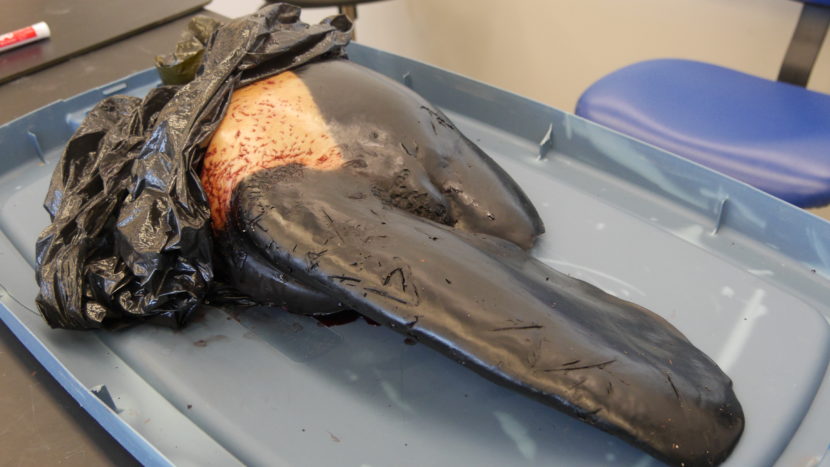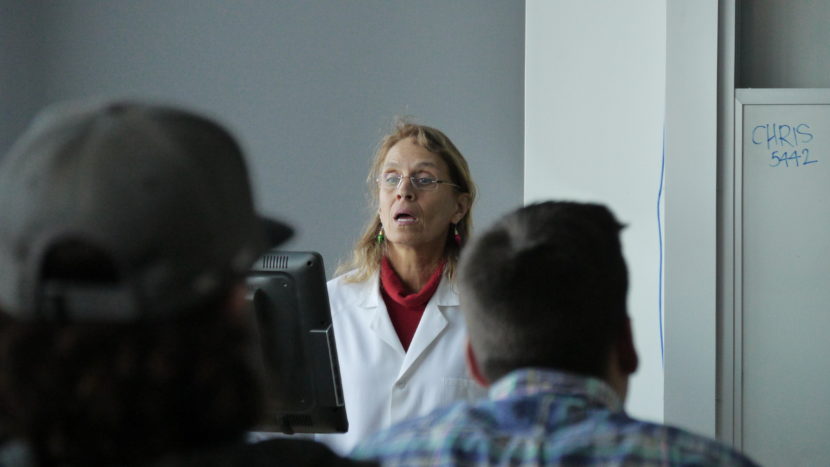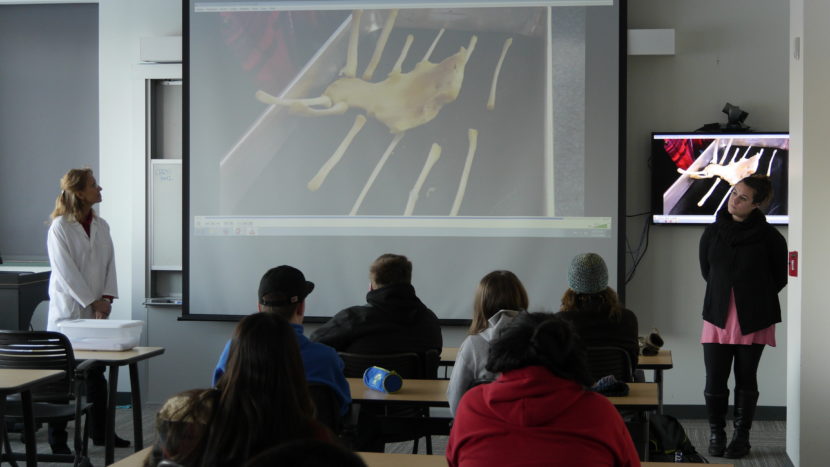
Shannon Atkinson is in a lab showing a Thunder Mountain High School class part of the body of a baby orca, also known as a killer whale.
“This animal happened to be a neonate – meaning it was just born. Its teeth hadn’t even erupted,” she said.
Atkinson is a University of Alaska Fairbanks professor who works out of Juneau. Her specialty is marine mammals.
Thanks to the Juneau School District and a local donor, in a few weeks this class of mostly juniors and seniors will cut into two orcas and take out their bones.
“And ultimately create a museum-quality skeleton articulation,” Atkinson said.
About 50 students will take the college-level marine biology class — and the skeletons will be put on display in their school.
“We’re going to hang a skeleton in the high school. And we’ve got a bunch of them there already,” Atkinson explained. “So when we articulate something we’re basically putting those bones back together.”

For the past seven years, Atkinson has taught a class called DEMBONES, an acronym for Distinctive Education in Motion Biodiversity of Nature and Environmental Stewardship.
It’s a college-level course for Thunder Mountain High’s marine biology class. The animals they use are usually found dead on the beach.
She said the class gives high school kids a unique opportunity to learn more about marine mammals.
“Everything from anatomy and physiology, ecology of the species, cultural uses of the animal, marine policy …,” Atkinson said.

But earlier this year, she was afraid DEMBONES wouldn’t happen. After the state cut funding to the University of Alaska, UAF officials decided they couldn’t pay for the class.
“What is so wonderful is that between the Juneau School District and this community at large, they are so supportive of education that they have found the funding for us to be able to continue the class,” Atkinson said.
At its last meeting, the Juneau School Board voted to add $11,000 to its budget specifically for DEMBONES. Atkinson said the class is also getting new money from a local nonprofit. Most of the new funds will offset tuition and fees.
“My understanding at this point is the tuition for Spring Semester is $192 per credit and this is a two-credit class,” Atkinson said.
With fees, she said the class would cost about $400 per student and she said in the past, students have only paid about $50 of that tuition.
The program also usually gets grant money to take care of miscellaneous expenses.
“We also have costs associated with transporting carcasses, the chemicals that we use to clean them up, the time that it takes for technicians to help us prepare the skeleton,” Atkinson said.
Her past students have reconstructed harbor seals, a Cook Inlet beluga whale and a walrus.
Atkinson said the orca class will start in January and it will take about 13 weeks to put the skeletons together.